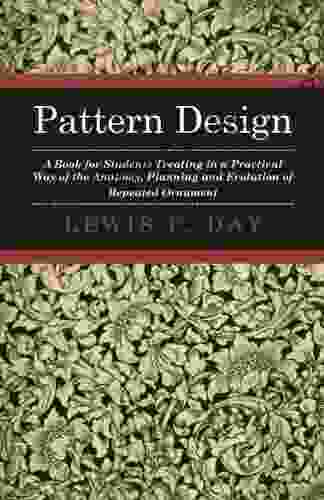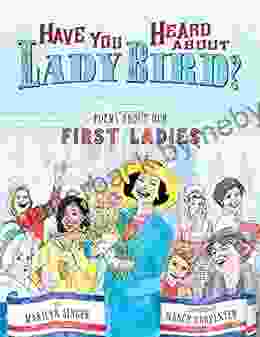Cultural Considerations Within Austrian Economics: Elements In Austrian Economics


Austrian economics is a school of economic thought that emphasizes the role of individual choice, entrepreneurship, and the market process. It is based on the idea that the economy is a complex system that cannot be fully understood or controlled by central planning. Austrian economists believe that the best way to promote economic growth and prosperity is to create a free market environment where individuals are free to make their own economic decisions.
4.4 out of 5
| Language | : | English |
| File size | : | 1113 KB |
| Text-to-Speech | : | Enabled |
| Screen Reader | : | Supported |
| Enhanced typesetting | : | Enabled |
| Word Wise | : | Enabled |
| Print length | : | 75 pages |
| X-Ray for textbooks | : | Enabled |
Culture is a complex and multifaceted concept that can be defined in many different ways. In general, culture refers to the shared beliefs, values, customs, and behaviors of a group of people. Culture can have a significant impact on economic behavior, as it shapes the way people think about money, work, and consumption.
Austrian economics takes culture into account when analyzing economic phenomena. Austrian economists believe that culture is an important factor that can influence the way that markets function. For example, cultures that emphasize individualism and self-reliance may be more likely to produce entrepreneurs and innovative businesses. Cultures that emphasize collectivism and cooperation may be more likely to produce large, bureaucratic organizations.
The Role of Culture in Austrian Economics
Culture plays a role in Austrian economics in several ways. First, culture shapes the way that individuals make economic decisions. For example, individuals who come from cultures that emphasize thrift and saving may be more likely to save money and invest for the future. Individuals who come from cultures that emphasize consumption and immediate gratification may be more likely to spend money and borrow money to finance their Free Downloads.
Second, culture shapes the way that markets function. For example, markets in cultures that emphasize competition and individualism may be more likely to be characterized by low prices and high levels of innovation. Markets in cultures that emphasize cooperation and collectivism may be more likely to be characterized by high prices and low levels of innovation.
Third, culture shapes the way that institutions are structured. For example, institutions in cultures that emphasize individual rights and limited government may be more likely to be designed to protect individual property rights and freedom of contract. Institutions in cultures that emphasize social welfare and government intervention may be more likely to be designed to provide social safety nets and regulate economic activity.
The Importance of Cultural Context for Economic Analysis
It is important to understand the cultural context of economic behavior when conducting economic analysis. This is because culture can have a significant impact on the way that individuals make economic decisions, the way that markets function, and the way that institutions are structured. Failing to take culture into account can lead to inaccurate and misleading s.
For example, an economist who ignores the cultural context of economic behavior may conclude that a particular government policy is likely to be successful because it has been successful in other countries. However, if the cultural context of the two countries is different, the policy may not be as successful in the new country.
Similarly, an economist who ignores the cultural context of markets may conclude that a particular market is likely to be competitive because it is characterized by low prices and high levels of innovation. However, if the market is located in a culture that emphasizes cooperation and collectivism, it may be more likely to be characterized by high prices and low levels of innovation.
Finally, an economist who ignores the cultural context of institutions may conclude that a particular institution is likely to be effective because it has been effective in other countries. However, if the cultural context of the two countries is different, the institution may not be as effective in the new country.
Culture is a complex and multifaceted concept that can have a significant impact on economic behavior, the way that markets function, and the way that institutions are structured. It is important to understand the cultural context of economic behavior when conducting economic analysis. Failing to take culture into account can lead to inaccurate and misleading s.
Austrian economics takes culture into account when analyzing economic phenomena. Austrian economists believe that culture is an important factor that can influence the way that markets function. By understanding the cultural context of economic behavior, Austrian economists can better understand how markets work and how to promote economic growth and prosperity.
4.4 out of 5
| Language | : | English |
| File size | : | 1113 KB |
| Text-to-Speech | : | Enabled |
| Screen Reader | : | Supported |
| Enhanced typesetting | : | Enabled |
| Word Wise | : | Enabled |
| Print length | : | 75 pages |
| X-Ray for textbooks | : | Enabled |
Do you want to contribute by writing guest posts on this blog?
Please contact us and send us a resume of previous articles that you have written.
 Book
Book Novel
Novel Page
Page Chapter
Chapter Text
Text Story
Story Genre
Genre Reader
Reader Library
Library Paperback
Paperback E-book
E-book Magazine
Magazine Newspaper
Newspaper Paragraph
Paragraph Sentence
Sentence Bookmark
Bookmark Shelf
Shelf Glossary
Glossary Bibliography
Bibliography Foreword
Foreword Preface
Preface Synopsis
Synopsis Annotation
Annotation Footnote
Footnote Manuscript
Manuscript Scroll
Scroll Codex
Codex Tome
Tome Bestseller
Bestseller Classics
Classics Library card
Library card Narrative
Narrative Biography
Biography Autobiography
Autobiography Memoir
Memoir Reference
Reference Encyclopedia
Encyclopedia Kenneth Rose
Kenneth Rose My Little Eye Press
My Little Eye Press Rebel Girls
Rebel Girls Patrick Tabaro
Patrick Tabaro Q Hayashida
Q Hayashida Michael A Tompkins
Michael A Tompkins Major T Benton
Major T Benton Kevin Hartman
Kevin Hartman Michael W Eysenck
Michael W Eysenck Megan Whalen Turner
Megan Whalen Turner Sharon Abimbola Salu
Sharon Abimbola Salu Wayne Stewart
Wayne Stewart Neil A Hogan
Neil A Hogan Tom Burns
Tom Burns Michael Pellegrino Esq
Michael Pellegrino Esq Kent Garrett
Kent Garrett Kevin Rafferty
Kevin Rafferty Ralph Kern
Ralph Kern Howard Thurman
Howard Thurman Kimberly Harrington
Kimberly Harrington
Light bulbAdvertise smarter! Our strategic ad space ensures maximum exposure. Reserve your spot today!

 Cameron ReedPattern Design For Students Treating In Practical Way Of The Anatomy Planning
Cameron ReedPattern Design For Students Treating In Practical Way Of The Anatomy Planning J.D. SalingerFollow ·15.1k
J.D. SalingerFollow ·15.1k Ralph TurnerFollow ·15.5k
Ralph TurnerFollow ·15.5k Stephen FosterFollow ·4.3k
Stephen FosterFollow ·4.3k Ethan MitchellFollow ·19k
Ethan MitchellFollow ·19k Jim CoxFollow ·13.7k
Jim CoxFollow ·13.7k Walt WhitmanFollow ·19.8k
Walt WhitmanFollow ·19.8k Cristian CoxFollow ·13.6k
Cristian CoxFollow ·13.6k Osamu DazaiFollow ·2.2k
Osamu DazaiFollow ·2.2k

 Isaac Asimov
Isaac AsimovEmbark on an Epic Adventure: The Colorado Trail 9th...
Unveiling the Treasures of the Colorado...

 Clinton Reed
Clinton ReedUltimate Football Heroes: Uncover the Gridiron Greatness...
Enter the World...

 Ibrahim Blair
Ibrahim BlairUnveiling the Secrets of Stolen Focus: A Journey to...
In today's relentless digital...

 Colt Simmons
Colt SimmonsRediscover the Founding Father's Vision: Thomas Jefferson...
Immerse Yourself in the Unedited Words of...

 Juan Butler
Juan ButlerExcel in Language Learning: The Ultimate Self-Study...
Unlock Your Language Potential with Our...
4.4 out of 5
| Language | : | English |
| File size | : | 1113 KB |
| Text-to-Speech | : | Enabled |
| Screen Reader | : | Supported |
| Enhanced typesetting | : | Enabled |
| Word Wise | : | Enabled |
| Print length | : | 75 pages |
| X-Ray for textbooks | : | Enabled |












